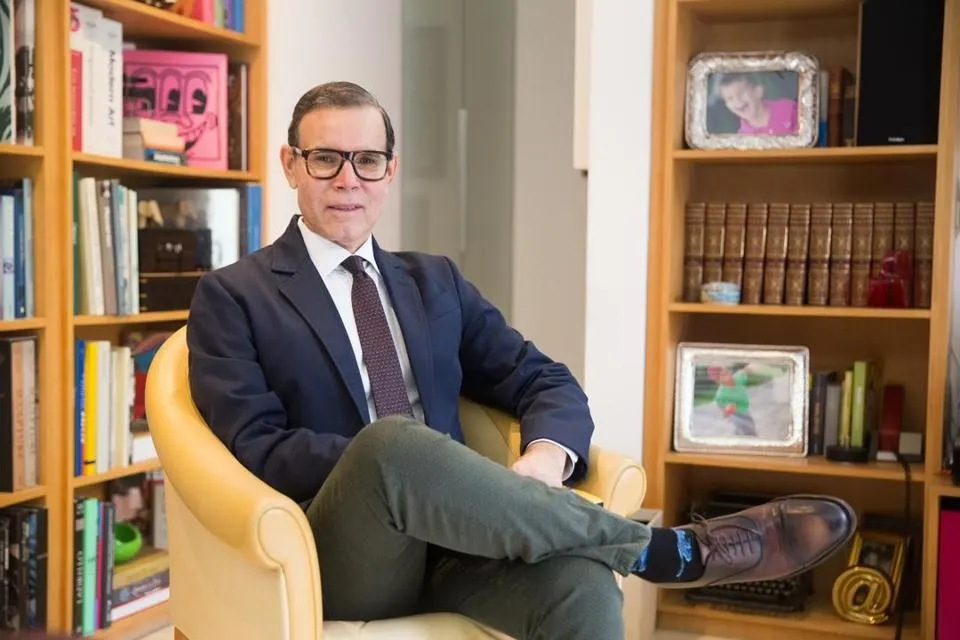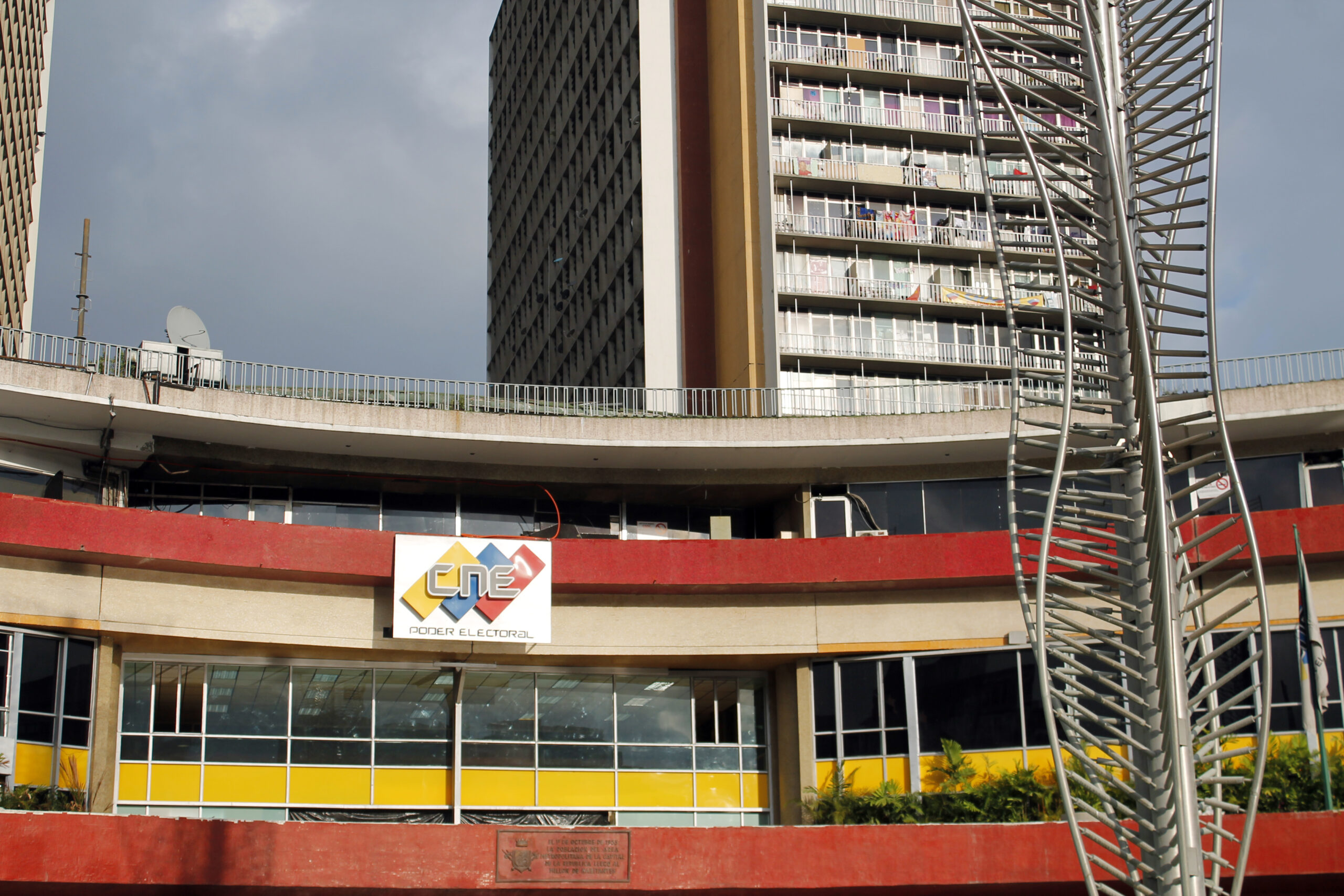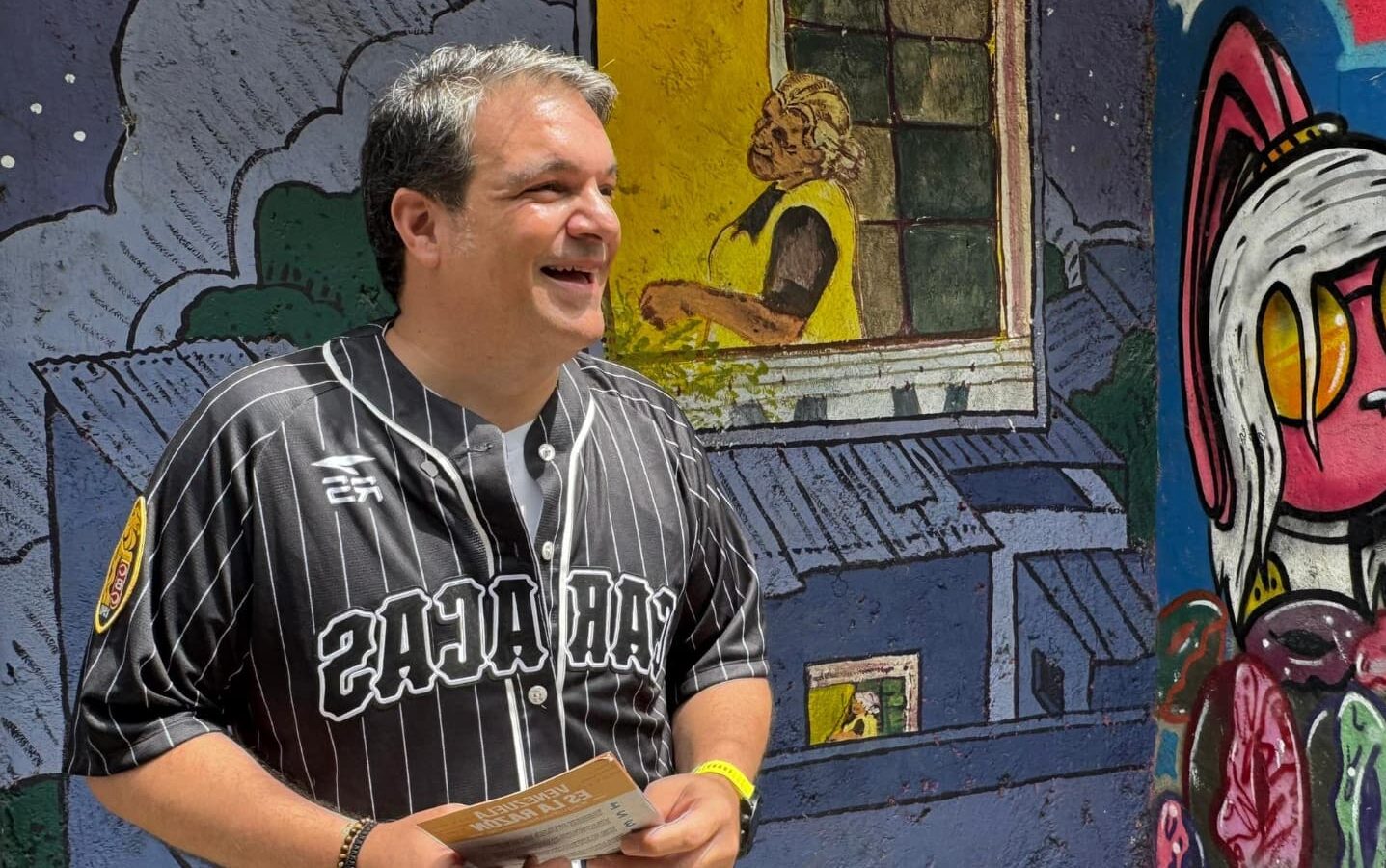Luis Vicente León is an economist and professor at the Andrés Bello Catholic University, as well as the president of Datanálisis.
Guacamaya, April 13, 2025. We speak with Luis Vicente León, one of Venezuela’s most renowned analysts. We asked him about the direction of Venezuela’s relationship with the United States under President Donald Trump. As the president of Datanálisis, his polling firm helps us understand what Venezuelans think today.
What is the impact of Washington’s policy toward Venezuela? How could it change? How many Venezuelans intend to emigrate? What are their expectations regarding the economy and potential political change? Who do they see as key figures? These are some of the questions covered in this interview.
Q: What do you think Trump is seeking regarding Venezuela? Negotiation? Regime change? Just deporting illegal immigrants?
A: Trump’s strategy toward Venezuela aligns with his global vision of reshaping the international system in favor of U.S. interests. While Venezuela is not the central focus, it remains an important component of his agenda.
First, Trump aims to reduce illegal migration to the U.S., where Venezuelans have gained notoriety due to the size of their diaspora and the perception of insecurity linked to certain criminal groups. However, it’s crucial to note that this perception has been amplified by radical sectors, who have exaggeratedly tied migration to gangs like the Tren de Aragua without conclusive evidence.
Second, Trump seeks to redefine the energy relationship with Venezuela, pursuing concrete advantages in energy supply and pricing while displacing the influence of actors like China in the region.
Finally, though Trump wants to pressure Venezuela toward democratization, international and Venezuelan experience suggests this process won’t happen immediately. It will require time and strategies that ensure the survival of the opposition and the preservation of existing democratic spaces.
Q: Who is directing U.S. policy toward Venezuela? What plans do they have?
A: Within the Trump administration, there are two main currents regarding Venezuela policy.
There’s a hardline faction, represented by figures like Marco Rubio, Michael Waltz, and Mauricio Claver-Carone, advocating for maximum pressure—focused on sanctions and isolating Maduro’s regime—hoping to force a change in government or, at the very least, deliver a punitive blow to the Venezuelan revolution, regardless of collateral damage to the general population.
Then there’s a pragmatic faction, led by Richard Grenell and other advisors close to Trump. This approach recognizes the limitations of sanctions and proposes a strategy combining pressure with economic incentives, aiming for a negotiated transition benefiting both the U.S. and Venezuela.
An analysis of Trump’s position and his MAGA objectives suggests he leans closer to the second vision, though he maintains a strategy of competition between both, likely to appease domestic political factions and assess results before making informed decisions.
Q: How could the U.S. help the democratic cause in Venezuela?
A: U.S. support for democracy in Venezuela should focus on fostering conditions for an orderly and sustainable transition.
First, this means using economic and energy relations as negotiation tools to improve electoral conditions and ensure opposition participation.
Second, supporting initiatives that strengthen civil society and promote human rights.
Third, avoiding well-intentioned policies that could further weaken the opposition or worsen living conditions, such as indiscriminate sanctions harming the broader economy.
We need resources and strength for entrepreneurs, universities, and civil society. Otherwise, sanctions leave the population fighting for political rights without food, structure, or leadership.
Q: So, are you saying economic pressure is not only ineffective but counterproductive?
A: Increased pressure means crushing the opposition. It’s a myth that the fight for freedom requires the country’s destruction.
Under maximum pressure, the government will become even harsher in its strategy to dismantle the opposition. Everyone becomes an equal enemy. This would be a response induced by external threats. Today, democratic spaces still exist, areas for negotiation between moderate opposition and the government. In Cuba, Iran, Nicaragua, and North Korea, those spaces are gone. Is that where we want to end up?
If we eliminate the remaining dissent, political solutions will depend solely on foreign intervention, as in the countries I mentioned. And they’ve endured decades of sanctions with no political change in sight.
Paradoxically, the truly “subversive” position is supporting U.S. Treasury licenses for Venezuela’s oil sector. In that scenario, the U.S. gains more influence, the economy becomes more transparent, and businesses gain resources. People have more to fight for, and hope remains alive. If licenses are revoked, control and sales revert to the Venezuelan government, likely transferring the entire energy sector to China and the non-Western world—the exact opposite of “America First.”
And why does Maduro allow the opposition to exist? Because he needs them as a bargaining chip. But if he has nothing left to lose, what do you think he’ll do? Why would he tolerate a political bloc seeking to oust him without restraint, including radical or forceful measures?
Q: Looking ahead, can we expect Trump to continue on this path for the remainder of his term? How might his policy toward Venezuela change?
A: Trump will likely keep evaluating the results of both factions within his administration before solidifying a definitive policy. However, the trend suggests a possible shift toward the pragmatic strategy, combining pressure with economic incentives.
That said, factors like China’s growing influence in the region and U.S. domestic politics could accelerate decisions shaping U.S. policy toward Venezuela in the short term.
Q: As president of Datanálisis, one of Venezuela’s most recognized polling firms, what do recent numbers say about Venezuelans’ thoughts on emigration? Any significant changes in recent months?
A: Recent Datanálisis polls show 20% of Venezuelans intend to emigrate—about 5 million people—while up to 40% have considered it.
This figure is much higher than in July, during the presidential election. The increase is directly tied to perceptions of economic decline and the expectation that there will be no political change
The threat of new sanctions and political uncertainty have created despair, driving many to see migration as the only viable option.
We can expect a new wave of migrants heading first to neighboring countries like Colombia and Brazil. That’s unstoppable. But do these countries have the capacity to receive them all? This could further destabilize the region, even strengthening guerrilla activity at the border.
Many will likely try to reach the U.S. or wealthier countries, as we’ve already seen. The answer is simple: if you want to reduce Latin American migration, the last thing you should do is fuel an economic crisis.
Q: So, ordinary citizens are linking sanctions to emigration?
A: Venezuelans already subconsciously connect the oil industry to the economy. Many believe more sanctions mean more shortages, electricity problems, and economic crisis. Without hope for political change, that translates to emigration.
Q: What are Venezuelans’ expectations for the economy?
A: About 70% believe the country’s economic situation will worsen in the near future. This pessimism stems from political instability, international sanctions, and distrust in institutions.
These factors create uncertainty, affecting both investment and domestic consumption, further exacerbating the economic crisis.
Q: What do Venezuelans think about participating in the May 25 elections? Are there any standout candidates?
A: Most Venezuelans no longer see voting as a tool for change—and that has consequences.
The institutional opposition’s call for abstention resonates with this sentiment but also blurs its identity. It offers no alternative, fails to mobilize, and doesn’t build a future.
No candidates today hold real national appeal. Even figures like María Corina Machado, who once had political capital, face significant and inevitable decline. Her support has dropped, partly due to backing sanctions that hurt ordinary citizens and endorsing summary deportations to El Salvador without distinguishing guilt. Our data shows only 12.6% explicitly support oil sanctions.
Claiming people are “begging” to be collectively punished to “remove Maduro”—with no guarantee of change after years of maximum pressure—is absurd to most Venezuelans, who are then labeled as naive or masochistic.
Unfulfilled promises of quick change and Maduro’s ouster replicate the credibility loss seen with Guaidó in 2019. Broken promises turn from rallying cries into time bombs.
Q: Who are Venezuelans’ political reference points? Which figures are most respected? Any significant changes since the July 28 elections?
A: Right now, there are few solid national figures.
Chávez remains an icon for his base.
María Corina, despite her decline, still leads the opposition space but has lost strength.
The bigger concern is that moderate, center-ground, negotiation-focused options lack a nationally strong, emotionally resonant leader. But that doesn’t mean there aren’t influential figures.
Manuel Rosales has high popularity in Zulia and significant national recognition.
Henrique Capriles, despite attacks from radical opposition sectors and the accumulated cost of past campaigns, maintains a message aligned with what most Venezuelans want: peace, progress, negotiation, solutions.
Both have been criticized for their rational stances, but these positions resonate more than radical rhetoric—especially because they defend what people feel: sanctions shouldn’t be collective punishment, and deportations without legal guarantees are unacceptable.
Rosales and Capriles don’t have the emotional sway María Corina once did. They’ll face a tough abstentionist wave in the upcoming elections. It won’t be easy. But they have something decisive in the medium term: a narrative matching most Venezuelans’ desires. That’s an opportunity—for them and for new leaders offering fresh, rational alternatives.







